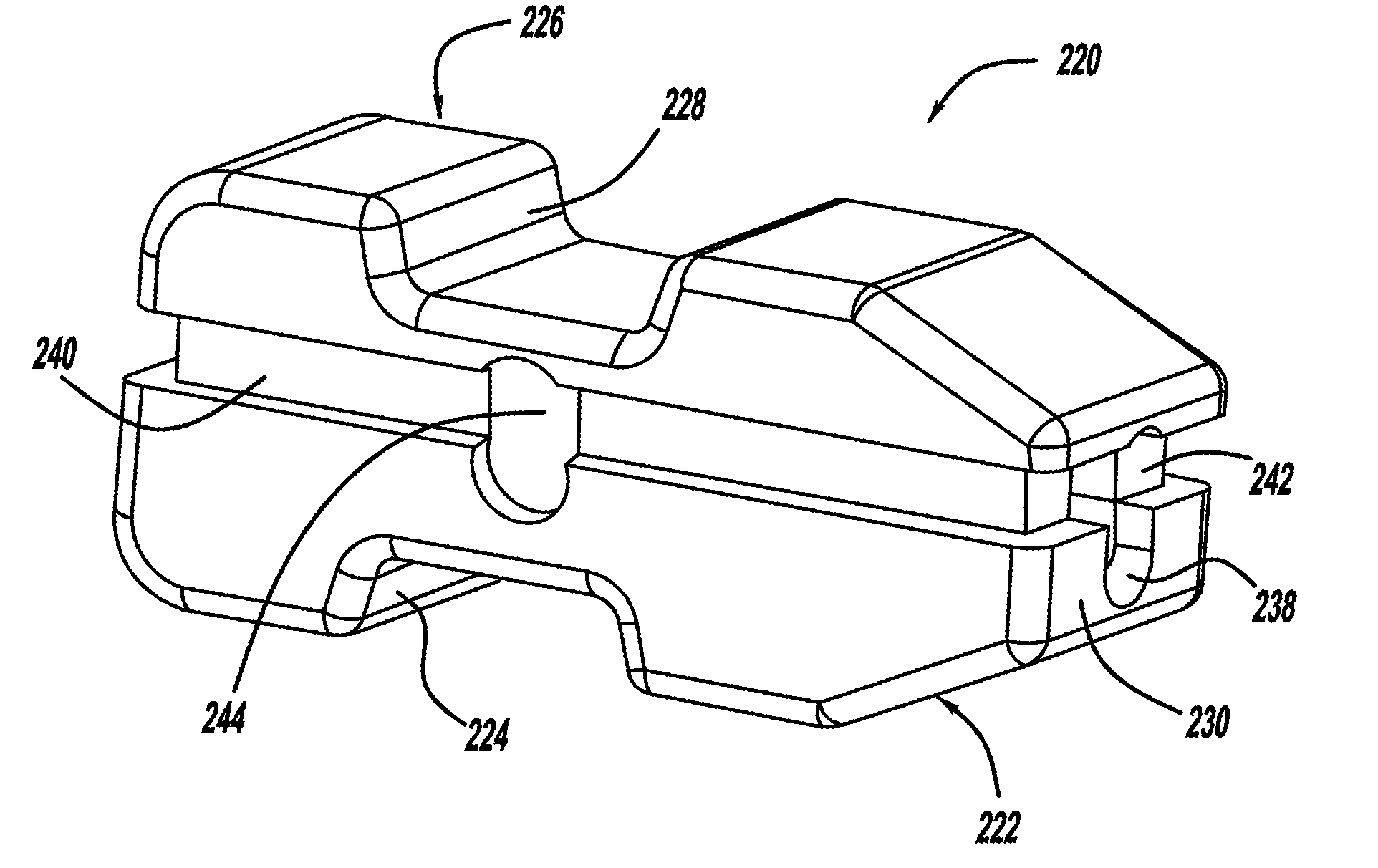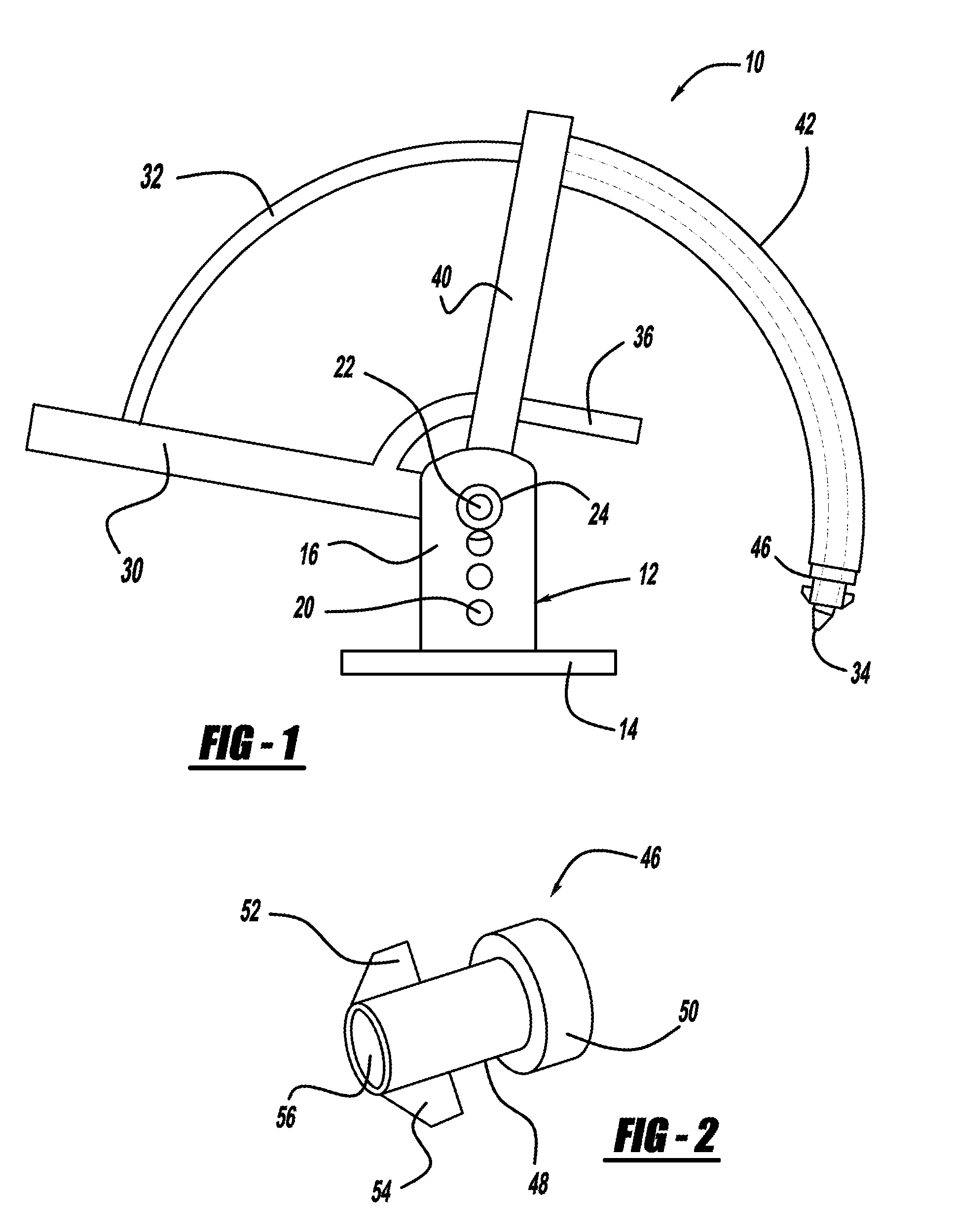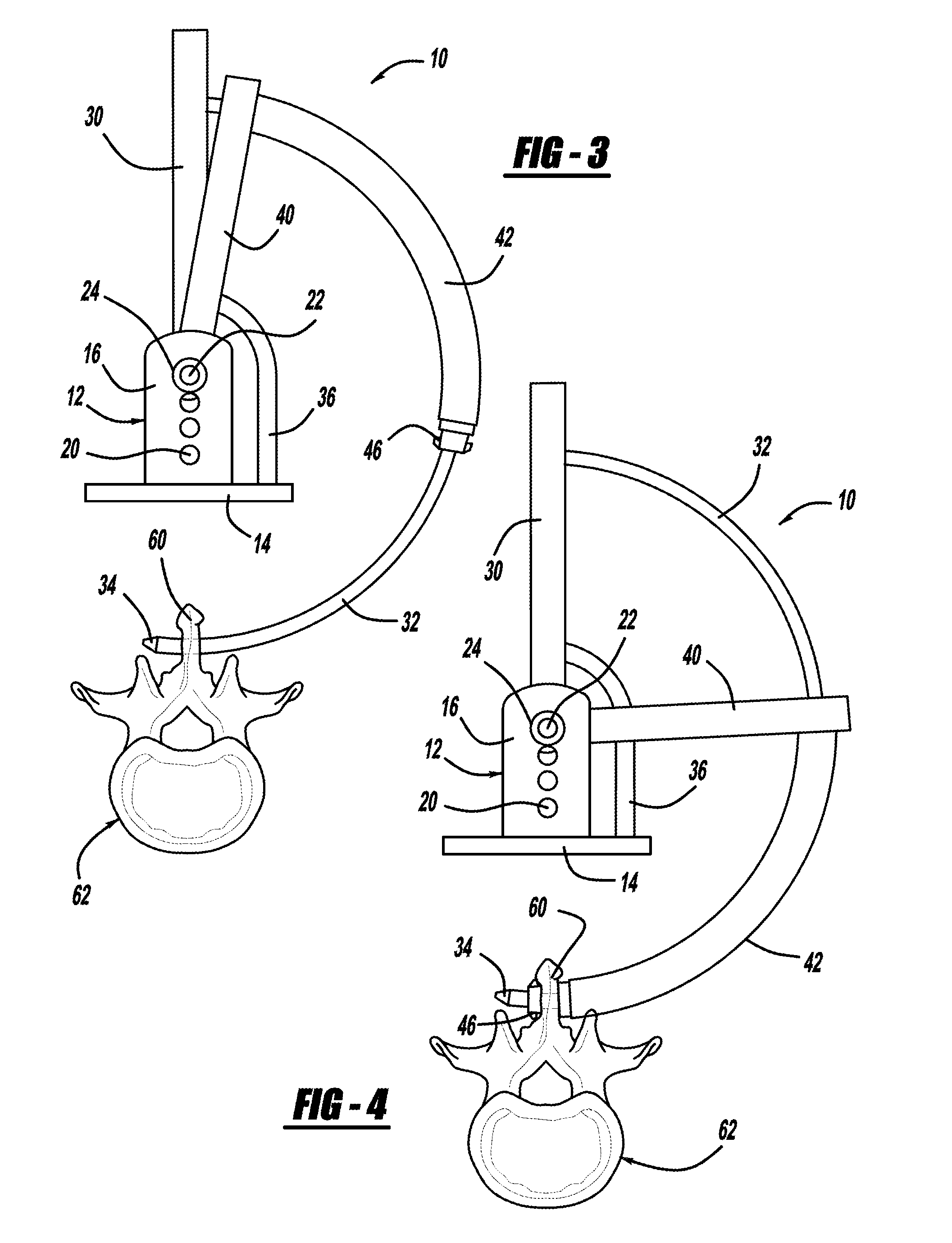Interspinous process spacer device including a rotatable retaining member
a technology of interspinous process and spacer, which is applied in the field of spacer devices, can solve the problems of disc failure, complex process, and slow disc degeneration in humans, and achieve the effects of reducing the number of disc failures, and improving the quality of li
- Summary
- Abstract
- Description
- Claims
- Application Information
AI Technical Summary
Benefits of technology
Problems solved by technology
Method used
Image
Examples
Embodiment Construction
[0033]The following discussion of the embodiments of the invention directed to an interspinous process spacer device to be positioned between the spinous process of adjacent vertebra is merely exemplary in nature, and is in no way intended to limit the invention or its applications or uses.
[0034]FIG. 1 is a side view of a minimally invasive interspinous process spacer insertion device 10, according to an embodiment of the present invention. As will be discussed in detail below, the device 10 is used to insert an interspinous process spacer between the interspinous process of adjacent vertebrae in a minimally invasive surgical procedure to provide a minimally invasive surgical solution to foramenal stenosis and / or lateral or central canal stenosis by opening up the foramen and spinal canal by flexing the spine and indirectly decompressing the neural elements. The device 10 preserves the muscle attachments to the spine, as well as integrity of the interspinous process ligament, and ca...
PUM
 Login to View More
Login to View More Abstract
Description
Claims
Application Information
 Login to View More
Login to View More - R&D
- Intellectual Property
- Life Sciences
- Materials
- Tech Scout
- Unparalleled Data Quality
- Higher Quality Content
- 60% Fewer Hallucinations
Browse by: Latest US Patents, China's latest patents, Technical Efficacy Thesaurus, Application Domain, Technology Topic, Popular Technical Reports.
© 2025 PatSnap. All rights reserved.Legal|Privacy policy|Modern Slavery Act Transparency Statement|Sitemap|About US| Contact US: help@patsnap.com



